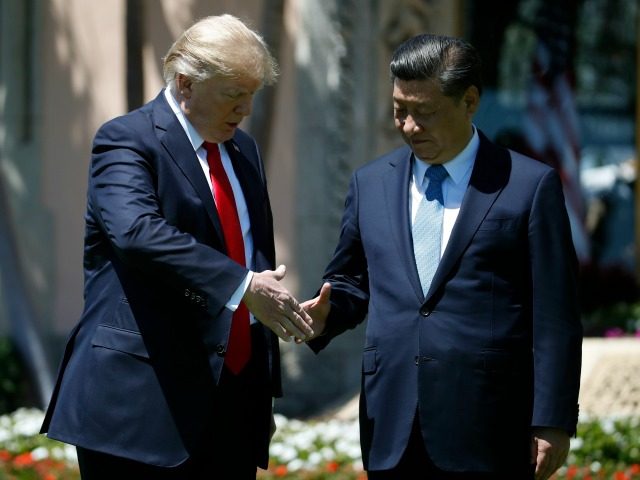At a press conference about President Donald Trump’s upcoming visit to China, Vice Foreign Minister Zheng Zeguang on Friday asserted Chinese sovereignty over the South China Sea and expressed hope that the United States would “help and not cause problems” with China’s conquest.
“The South China Sea isn’t an issue between China and the United States,” said Zheng. “We hope that as an external party, the United States can plant more flowers and fewer thorns, help and not cause problems.”
This was probably meant as an oblique reference to the U.S. Navy’s freedom of navigation patrols in the South China Sea, the most recent having been conducted by the missile destroyer USS Chafee near the Paracel Islands in October.
Beijing complained that the patrol “violated the Chinese law and relevant international law, severely undermined China’s sovereignty and security interests, and put in jeopardy the life safety of the frontline personnel from both side.” The U.S. Defense Department stated the destroyer did not come within the internationally-recognized limit of 12 nautical miles around any of the Paracels. The U.S. has said it intends to continue conducting freedom of navigation patrols in the area.
Zheng insisted the only real problem in the South China Sea is “some regional countries’ illegal occupation of some of China’s islands and reefs,” which is not how an international tribunal in the Hague ruled in July 2016, but China has been resolutely ignoring that ruling ever since it was handed down.
China announced on Thursday that it has reached an agreement with Vietnam over one of the most strident South China Sea disputes – a dispute that grew so heated, China and Vietnam canceled a scheduled meeting in August. Chinese Foreign Minister Wang Yi was in Vietnam last week to meet with officials in advance of an upcoming visit from Chinese President Xi Jinping.
The nature of China’s rapprochement with Vietnam is still unclear, with a sizable Vietnamese oil drilling project on the line. Vietnamese Deputy Prime Minister Pham Binh Minh gave a statement that suggested the two parties have basically agreed to sit down and resolve their disputes based on “common sense and international law.”
The Chinese pointed to this agreement and hoped “countries outside the region can objectively view positive change in the South China Sea situation, and do more for peace and stability in the region,” as Assistant Foreign Minister Chen Xiaodong put it. There is little doubt which “country outside the region” he was referring to.
China chose Friday to unveil its new South China Sea construction flagship Tiankun, a massive island-building machine that can dredge 6,000 cubic meters of mud per hour. The ship will reportedly be used to construct military bases in the South China Sea. China claims the previous construction flagship, Tianjang, built seven man-made islands in a single year; Tiankun may be capable of building nine.
Beijing-based military expert Li Jie assured the South China Morning Post that China will “abide by the Code of Conduct in the South China Sea” and will not use Tiankun to “expand its artificial islands,” but observers from outside China expressed considerable skepticism of those claims.

COMMENTS
Please let us know if you're having issues with commenting.